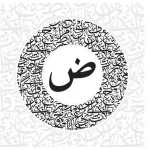Welcome to Mystic Verse!
A haven for lovers of mystical and devotional poetry.

A passion for creating verses
Immerse yourself in a world where words transcend the ordinary and evoke the divine…
Personal and Experiential Tone
Unlike didactic religious texts, mystical poetry is deeply personal, often recounting the poet’s direct encounter with the divine or the inner journey of the soul. This introspective quality, seen in the confessional style of St. Teresa of Ávila or the introspections of William Blake, invites readers into the poet’s spiritual experience.
Symbolism and Allegory
Mystical poetry is rich in symbols—such as the soul as a lover, the divine as a bridegroom, or the journey as a metaphor for spiritual ascent. These symbols often draw from religious traditions, like the rose in Sufi poetry or the ladder in Christian mysticism, to convey deeper spiritual truths.
Paradox and Contradiction
Mystical poets often embrace paradoxes to reflect the mysterious nature of the divine. Concepts like light in darkness, presence in absence, or suffering as joy are common. This is evident in the poetry of Kabir, who blends Hindu and Islamic mysticism, or in T.S. Eliot’s Four Quartets, which wrestles with time and eternity.
Intense Emotional and Sensory Imagery
Mystical poetry employs vivid, often sensual imagery to convey spiritual truths. The language can be passionate, evoking love, longing, or awe, as seen in the works of Mirabai, who uses romantic imagery to express devotion to Krishna, or in the ecstatic visions of Hildegard of Bingen.
Ineffability
A hallmark of mystical poetry is the acknowledgment that the mystical experience is beyond words or human comprehension. Poets often grapple with the paradox of describing the indescribable, using apophatic language (defining God by what He is not) or vivid imagery to gesture toward the inexpressible. For instance, the Cloud of Unknowing reflects this struggle.
Transcendence and Union
Mystical poetry frequently explores the longing for or experience of unity with a higher power, God, or the infinite. Poets describe transcending the self to merge with the divine, often using metaphors of love, dissolution, or ecstatic surrender. Examples include Rumi’s Sufi poetry and St. John of the Cross’s Dark Night of the Soul.
An array of resources
Here are some valuable resources for exploring mystical and devotional poetry, drawing from various traditions and eras. These include books, websites, and journals that offer access to both classic and contemporary works, as well as insights into their spiritual and literary significance.
Books
- “Rumi: Unseen Poems” translated by Brad Gooch
- A collection of lesser-known works by the Sufi mystic Rumi, highlighting his themes of divine love and transformation. Gooch’s translations capture Rumi’s ecstatic and universal appeal. Recommended in Bookmarks for its spiritual depth.
- “The Enlightened Heart: An Anthology of Sacred Poetry” edited by Stephen Mitchell
- This anthology focuses on mystical poetry of fulfillment, featuring poets like Rumi, Mirabai, and Mary Oliver. Mitchell’s introduction distinguishes between religious longing and mystical experience, making it a great resource for spiritual seekers. Referenced in Medium articles for its clarity on mysticism.


Websites
- Poetry Chaikhana (www.poetry-chaikhana.com)
- A rich online archive of mystical poetry from diverse traditions, including Christian (Hildegard von Bingen, St. Symeon), Sufi (Rumi, Hafiz), Hindu (Mirabai), and secular poets like William Blake and Mary Oliver. The site includes poet biographies and thematic collections, making it a go-to for global mysticism.
- Poet Seers (www.poetseers.org)
- A collection of spiritual and devotional poetry organized by tradition (Christian, Hindu, Buddhist, Jewish, etc.) and era (e.g., British Romantics, Early American). Features poets like St. Francis of Assisi, Walt Whitman, and Rabindranath Tagore, with inspirational quotes and poems.
“Mystical poetry is the voice of the soul reaching for the divine, weaving words into a ladder that climbs beyond the limits of language to touch the eternal.”

Inspired by
Rumi and St. John of the Cross
Watch, Read, Listen
-
“So glimpse with your mind or with your sight: do you see
anything other than an act from among the acts?”
Abu Madyan
Join our subscribers
Stay in the loop, contribute a verse.